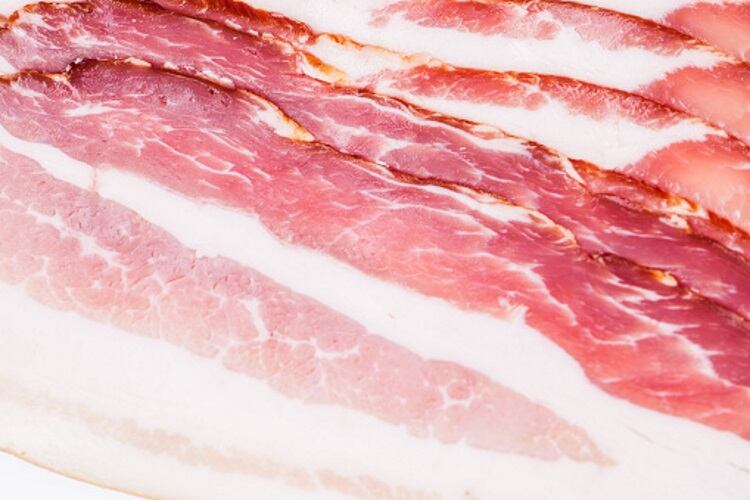A study jointly funded by Cancer Research UK and published in the International Journal of Epidemiology found that that people eating around 76g of red and processed meat a day, only slightly above Government recommendations had a 20% higher chance of developing bowel cancer than those who only ate about 21g a day.
The research found that risk of bowel cancer rose 20% with every 25g of processed meat people ate per day, and 19% with every 50g of red meat.
Guidance
Department of Health guidance states that people who eat more than 90g (cooked weight) of red and processed meat a day should reduce this to 70g, which is the average daily consumption in the UK. The NHS advises that if a person eats more than 90g one day, they could eat less or go meat-free on the following days so that the average amount consumed is no more than 70g per day.
The NHS also reminds consumers that meats such as chicken, pork, lamb and beef are all rich in protein, and that a balanced diet can include protein from meat, as well as from non-animal sources such as beans and pulses. It adds that red meat provides with iron, and meat is also one of the main sources of vitamin B12.
Cancer Research UK’s expert in diet and cancer, and deputy director at the University of Oxford’s cancer epidemiology unit Professor Tim Key said: “Our results strongly suggest that people who eat red and processed meat four or more times a week have a higher risk of developing bowel cancer than those who eat red and processed meat less than twice a week.
“There’s substantial evidence that red and processed meat are linked to bowel cancer, and the World Health Organisation classifies processed meat as carcinogenic and red meat as probably carcinogenic,” he added. “But most previous research looked at people in the 1990s or earlier, and diets have changed significantly since then, so our study gives a more up-to-date insight that is relevant to meat consumption today.”
Balanced diet
Dr Julie Sharp, Cancer Research UK’s head of health information, said these findings didn’t mean red or processed meats should be cut out entirely but rather consumed as part of a balanced diet. “The government guidelines on red and processed meat are general health advice and this study is a reminder that the more you can cut down beyond this, the more you can lower your chances of developing bowel cancer.
“This doesn't necessarily mean cutting out red and processed meat entirely, but you may want to think about simple ways to reduce how much you have and how often. Although breaking habits we’ve had for a long time can be hard, it’s never too late to make healthy changes to our diet. You could try doing meat free Mondays, looking for recipes using fresh chicken and fish, or swapping meat for pulses like beans and lentils in your usual meals.”
This is not the first time meat consumption has been linked to cancer. In October 2015, a World Health Organisation report classified processed meat as carcinogenic to humans however this classification was largely criticised by the meat industry.


